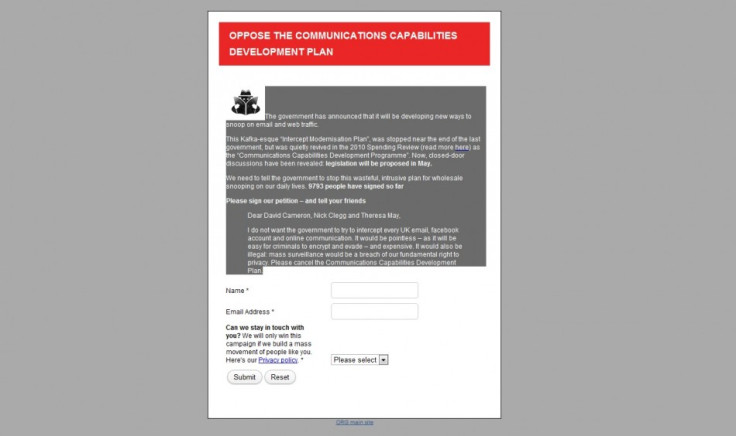UK's Cyber Snoop Reforms Opens Door to MI5 and MI6

While the world's eyes remain squarely fixed on Acta, cyber reforms in Britain have already begun to grant authorities the power to monitor citizens' online activities.
Listed by Sophos security experts as a tweaked and rebranded version of the Interception Modernisation Programme, the Communications Capabilities Development Programme (CCDP) has crept on to the UK's legislative agenda.
Though not on the same level as the anti-Acta protests sweeping Europe, privacy groups have already expressed concerns over CCDP measures. A common fear is that the measures will force mobile, landline telecoms companies and ISPs to compromise the privacy of users because of law enforcement agency demands.
According to a report in the Daily Telegraph the CCDP will require the companies to store customers' data for a full year - giving agencies such as GCHQ, MI5 and MI6 access to information such as customers' email addresses, IP addresses and phone numbers.
Reports have also suggested the CCDP will grant agencies the right to monitor activity on other online services such as social networks and online gaming systems like Facebook and Xbox Live.
CCDP has already been criticised by numerous analysts and consumer groups. Sophos security expert Lachlan Urquhart pointed out that the programme would allow law enforcement to covertly monitor citizens with little to no public accountability.
"While the actual content of calls, texts and emails wouldn't be stored, it means the companies and law enforcement are brought together in an even closer working relationship and incorporates companies into public policing practices, despite their lack of public accountability and transparency," read Urquhart's blog post.
Urquhart went on to question the policy suggesting that each ISP and telecoms company's databases would attract the attention of cyber criminals. The huge financial cost of maintaining the systems was another primary concern.
"The databases would presumably be prize hacking targets, and the resulting collateral impacts for privacy would be huge. Mass disclosures of personal data would compromise a lot of individuals' rights, especially when data from social networks is included in the pot.
"Another big practical concern is the financial burden on ISPs and telcos from this scheme. Who will bear the costs?"
Urquhart's criticisms mirror those raised by the Open Rights Group, which has already launched an online petition to protest against the CCDP.
"I do not want the government to try to intercept every UK email, facebook account and online communication. It would be pointless - as it will be easy for criminals to encrypt and evade - and expensive," read the Open Rights Group's petition addressed to David Cameron, Nick Clegg and Home Secretary Theresa May.
"It would also be illegal: mass surveillance would be a breach of our fundamental right to privacy. Please cancel the Communications Capabilities Development Plan."
According to Home Office documents, the CCDP plans will be published in April and implemented in June 2015. The Open Rights Group's petition has already gathered a reported 9,793 signatures.
More information about Acta and the ongoing debate regarding online censorship and monitoring can be found on the International Business Times UK's Cyber Warfare section.
© Copyright IBTimes 2024. All rights reserved.





